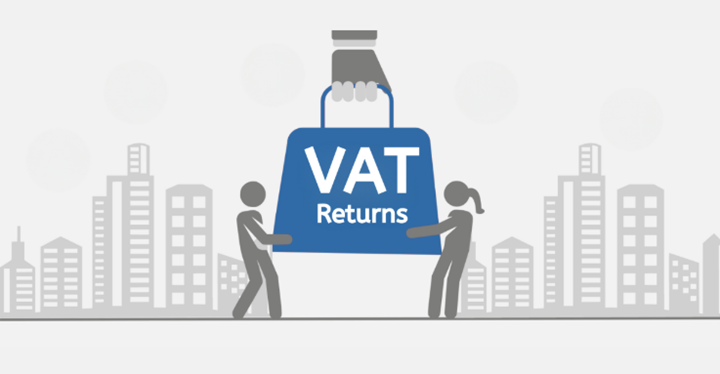
If you run a VAT-registered business in the UK, filing a VAT return is something you can’t avoid. But between figuring out what goes in the return, when it’s due, and how to stay compliant with Making Tax Digital (MTD), the process can feel overwhelming.
The good news? With the right system and tools, submitting your VAT return doesn’t have to be stressful. In this guide, we’ll explain what a VAT return is, what information it includes, how MTD works, and the step-by-step process to file yours correctly.
What Is VAT and Who Needs to Register?
Value Added Tax (VAT) is a tax on most goods and services sold in the UK. If your business turnover exceeds the current VAT threshold of £90,000, you must register with HMRC.
Once registered, you’re required to:
-
- Charge VAT on your sales
-
- Keep detailed VAT records
-
- Submit VAT returns (usually every quarter)
Some businesses also choose to register voluntarily if it benefits their operations—for example, if they want to reclaim VAT on purchases.
What Is a VAT Return?
A VAT return is a summary of the VAT your business has charged customers (output VAT) and the VAT you’ve paid on purchases (input VAT).
Your VAT return tells HMRC:
-
- Your total sales and purchases
-
- The VAT you charged on sales
-
- The VAT you paid on expenses
-
- Whether you owe HMRC or are due a refund
Even if you don’t owe VAT for a period, you must still submit a return if you’re VAT-registered.
Understanding Making Tax Digital (MTD) for VAT
HMRC’s Making Tax Digital (MTD) initiative requires VAT-registered businesses to keep digital records and submit VAT returns using MTD-compatible software.
That means:
-
- No more manual submissions via the old HMRC portal
-
- You must use approved accounting software that connects directly to HMRC
-
- MTD rules apply whether you’re above the threshold or voluntarily registered
What Information Goes into a VAT Return?
Your VAT return must include:
-
- Total sales and purchases for the period
-
- VAT charged on sales (output VAT)
-
- VAT paid on purchases (input VAT)
-
- The final amount you owe HMRC or can reclaim
Keeping accurate, digital records in your accounting software makes this process much easier.
How to Submit a VAT Return via MTD (Step-by-Step)?
Here’s the process for filing your VAT return through MTD:
-
- Choose MTD-compatible software – Tools like Xero or QuickBooks connect directly to HMRC and automate calculations.
-
- Link your software to HMRC – Authorize your software to submit returns on your behalf.
-
- Log all sales and expenses – Check that VAT is applied correctly and records are complete.
-
- Submit your VAT return – Send it through your software and wait for HMRC’s confirmation.
-
- Pay any VAT due – Settle your VAT bill before the deadline to avoid penalties.
Common VAT Return Mistakes to Avoid
VAT returns are straightforward once you’re set up, but mistakes can cost you. Watch out for:
-
- Missing deadlines – Returns are due one month and seven days after the VAT period ends.
-
- Using the wrong VAT rate – Confirm whether goods/services are 20% (standard), 5% (reduced), or 0% (zero-rated).
-
- Claiming ineligible expenses – Not all purchases qualify for VAT recovery.
-
- Skipping MTD rules – Manual submissions are no longer accepted.
How an Accountant Can Help with VAT Returns?
If your business has multiple revenue streams, international transactions, or you simply don’t want the stress, a qualified accountant can:
-
- Set up MTD-compliant software
-
- Maintain accurate records
-
- Ensure VAT is applied correctly
-
- File returns on time, every time
-
- Communicate with HMRC on your behalf
They can also help you spot savings by reclaiming VAT on eligible expenses you might otherwise miss.
Final Thoughts: Making VAT Returns Simple
Submitting a VAT return through MTD may seem daunting at first, but with digital software, most of the process is automated—reducing errors and saving you time.
The bottom line: if you’re VAT-registered, you must file on time through MTD-compliant software. And if you’re unsure where to begin, getting expert help ensures your VAT returns are accurate, compliant, and stress-free.
I
Instant Quote
We charge a monthly fee based on your business type
We will never share your details with any third-party. Please see our Privacy Policy for more details.

